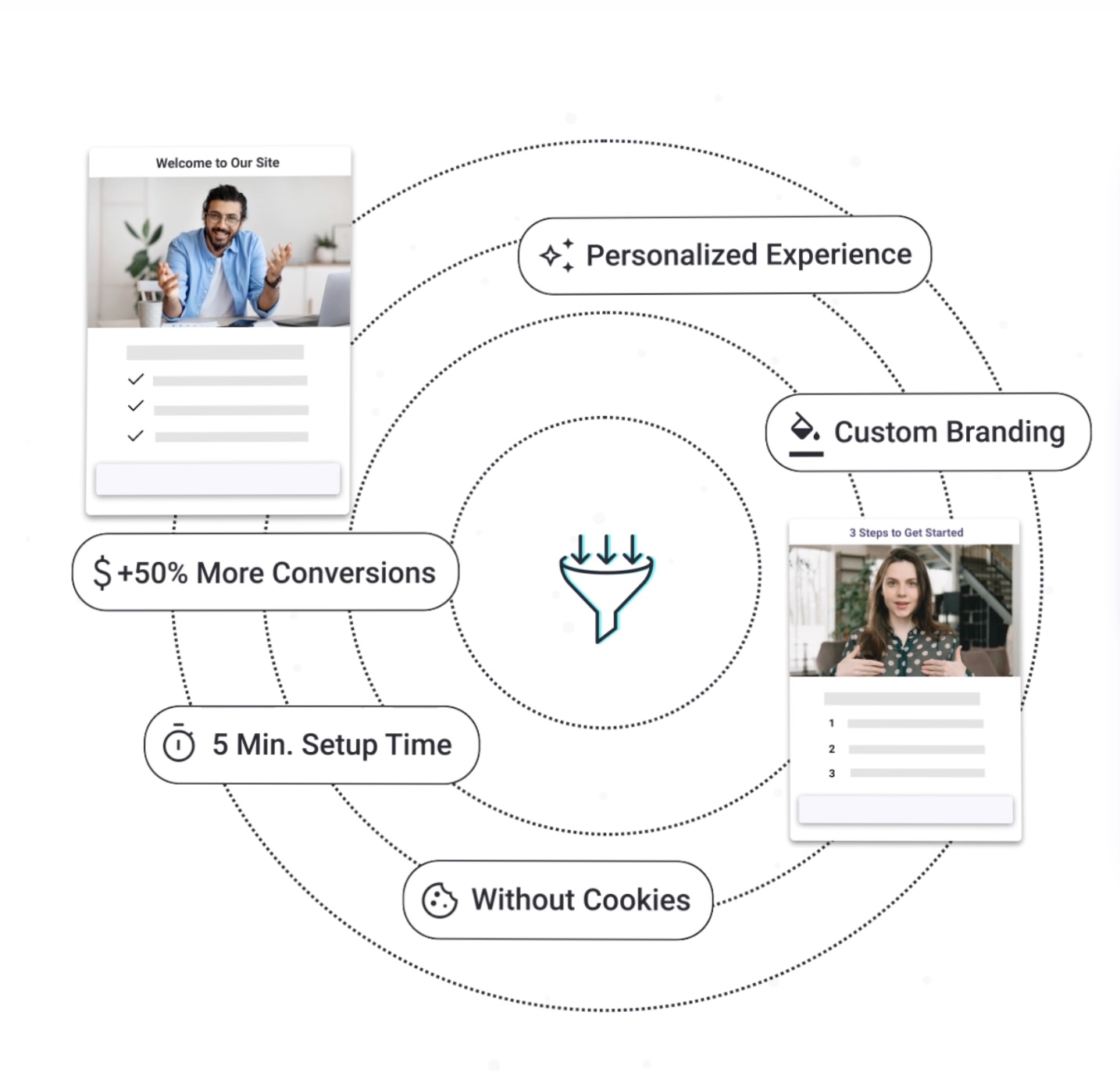Lean Marketing: Applying Agile Principles for Marketing Efficiency


Imagine a scenario where your team is constantly reacting to market changes, and your groundbreaking projects are repeatedly delayed by unforeseen interruptions. If this sounds all too familiar, you’re not alone.
This blog post delves into a revolutionary approach—Lean Marketing. In a world where speed, adaptability, and efficiency are paramount, Lean Marketing draws inspiration from the Lean Startup methodology, a concept initially tailored for product development in startups. However, as we’ll explore, the principles of Lean Marketing have found a powerful application in the realm of marketing, reshaping how teams operate, create, and respond to the ever-shifting marketing landscape.
The Power of Lean Marketing
The roots of Lean Marketing can be traced back to the Lean Startup methodology, a framework pioneered by entrepreneur and author Eric Ries. Originally designed for product development in startups, the Lean Startup methodology is characterized by its emphasis on iterative, shortened product release cycles and scientific experimentation.
1. Moving Fast: Short, Iterative Cycles in Marketing
One of the cornerstone principles of Lean Marketing lies in its ability to move at an unprecedented pace. Unlike traditional marketing approaches that follow lengthy planning and execution cycles, Lean Marketing operates on short, iterative cycles, often referred to as sprints. These sprints, which may last two weeks or a month (with shorter durations typically proving more effective), empower marketing teams to adapt swiftly to the dynamic conditions of the market.
Consider the scenario where a competitor launches a new product. In a Lean Marketing framework, the team can promptly adjust their projects for the upcoming cycle, crafting a robust campaign in response. This agility was vividly demonstrated by HubSpot’s marketing team during the explosive rise of Pinterest in 2012. Recognizing the social network’s sudden popularity, the team rapidly conceived, created, and launched the “How to Use Pinterest for Business” ebook in just four days. The result? An impressive 40,000 downloads in the first month, showcased the power of swift, responsive marketing.
Another case study involves HubSpot’s leap onto the “Gangnam Style” trend. Capitalizing on the viral phenomenon, the marketing team swiftly produced an inbound-themed parody video. Within a day, it garnered over 18,000 views, ultimately becoming the most-watched HubSpot video at the time. These examples underscore the transformative impact of moving fast in an ever-evolving digital landscape.
2. Staying Focused: Prioritizing Projects for Optimal Results
In the fast-paced world of marketing, ideas and requests can pour in from various directions—your CEO, VP of Sales, or even colleagues unfamiliar with marketing. One of the strengths of Lean Marketing is its ability to keep teams focused amidst the myriad of potential distractions. At the commencement of each sprint, the team strategically selects a limited number of projects—the projects that will receive undivided attention during that specific timeframe.
The concept of a prioritized backlog plays a pivotal role in this process. Any additional, valuable marketing requests that arise during a sprint are added to this backlog. This disciplined approach ensures that the team remains concentrated on the pre-determined projects, while other promising ideas are queued for future attention. This not only streamlines operations but also prevents the dilution of efforts and resources across too many initiatives.
3. Prioritization and Tackling Projects with Foresight
Lean Marketing places a strong emphasis on prioritization, ensuring that every project has a clear goal, success metric, and evaluation of effort required. Each project, or user story, is defined with transparent success criteria and metrics that must be met for the project to be considered complete. This clarity not only guides the team in their efforts but also provides transparency to the entire organization.
Moreover, the structure of Lean Marketing forces teams to confront blockers head-on and plan proactively. Daily standup meetings and burndown charts enable team members to discuss ongoing tasks, address any challenges, and ensure the team is progressing toward its goals. This commitment to foresight ensures that potential issues are identified early and addressed, keeping the team on track to accomplish their committed goals.
8 Principles of Lean Marketing

Lean marketing emphasizes optimizing processes and delivering value to the customer. These are the 8 principles you need to apply to implement a lean marketing strategy:
1. Organize Campaigns Around the Sprint
Lean marketing begins with organizing your efforts around sprints – short, focused periods of intense work. This principle encourages marketing teams to set specific goals for a defined timeframe, promoting a sense of urgency and efficiency. By breaking down larger marketing initiatives into manageable sprints, teams can maintain a laser focus on objectives, fostering adaptability in the face of rapidly changing market conditions.
2. Structure Your Scrum Teams
Effective collaboration is at the heart of lean marketing. Structuring your teams using the Scrum framework promotes cross-functional collaboration, bringing together individuals with diverse skill sets to tackle challenges collectively.
This interdisciplinary approach enhances creativity, problem-solving, and the ability to respond swiftly to emerging opportunities.
3. Keep a Backlog
A well-maintained backlog acts as a dynamic to-do list for your marketing team. It ensures that all potential tasks, ideas, and improvements are captured in one centralized location. This principle encourages marketers to prioritize tasks based on value and urgency, allowing for quick adjustments to the marketing strategy as market conditions evolve.
4. Create User Stories
Understanding your target audience is paramount in lean marketing. Creating user stories – concise narratives that outline a user’s interaction with your product or service – helps in aligning marketing efforts with customer needs. By focusing on the user perspective, marketing teams can tailor their strategies to resonate with the audience, driving engagement and satisfaction.
5. Plan a Sprint
Planning is key to success in lean marketing. Before each sprint, teams should meticulously plan their objectives, defining what success looks like and outlining the tasks required to achieve it. This structured approach ensures that everyone is on the same page, minimizing misunderstandings and maximizing the impact of each sprint.
6. Commit Publicly
Transparency and accountability are integral to lean marketing. Committing publicly to your marketing goals creates a sense of responsibility within the team and communicates your dedication to stakeholders. This principle fosters trust among team members and builds a culture of reliability, crucial for achieving long-term marketing success.
7. Commit to a Daily Standup
Daily standup meetings, where team members provide brief updates on their progress and challenges, facilitate quick decision-making and issue resolution. This ongoing communication ensures that the team remains aligned with the overall marketing strategy and can swiftly adapt to changing circumstances.
8. Set Up Daily Reports
Measuring and analyzing performance is a continuous process in lean marketing. Setting up daily reports allows teams to track key metrics and assess the impact of their efforts. This data-driven approach provides valuable insights, enabling marketers to make informed decisions, optimize strategies, and demonstrate the return on investment to stakeholders.
The Impact of Generative AI in Lean Marketing
Generative AI has emerged as a game-changer in the realm of Lean Marketing, ushering in a new era of efficiency, innovation, and strategic decision-making. By harnessing the power of machine learning and natural language processing, Generative AI introduces a myriad of capabilities that significantly enhance a startup’s ability to implement a lean, iterative marketing approach.
Personalization Precision
- As marketing campaigns scale with small iterations, AI becomes a cornerstone for showcasing personalized content.
- Pathmonk Accelerate analyzes user data to generate tailored product recommendations and website experiences boosting over 50% conversion rates.
More Sales From Your Website With AI
Personalized interactions based on your users' behaviour to get +50% more conversions.

Social Listening and Sentiment Analysis
- Generative AI, equipped with natural language processing, revolutionizes how startups perceive and analyze social data.
- Enables rapid comprehension of market gaps and sentiment analysis before product launches.
Content Creation Revolution
- Building on hypotheses derived from social listening, Generative AI facilitates the creation of high-quality content with minimal resource investment.
- Tools like ChatGPT generate drafts for various content types, from blog posts to product descriptions, expediting the content creation process.
Fast Testing and Optimization
- Testing, a crucial practice for startups refining marketing strategies, is elevated with the assistance of Generative AI.
- Designs and executes tests, analyzes results, and suggests adjustments for continuous optimization, ensuring marketing efforts are finely tuned.
Global Outreach and Localization Ease
- For startups eyeing international expansion, Generative AI streamlines the translation and localization of content.
- Ensures relevance to diverse global audiences, expanding reach and appeal.
Conclusion: Embracing Efficiency with Lean Marketing
In the dynamic landscape of marketing, the application of Agile principles through Lean Marketing has proven to be a catalyst for efficiency, responsiveness, and success. As we traverse the realms of sprint cycles, scrum teams, and prioritized backlogs, the agile nature of Lean Marketing becomes apparent—enabling marketing teams to adapt swiftly, focus strategically, and prioritize effectively.
The eight principles of Lean Marketing serve as a roadmap for marketers aiming to emulate the agility and efficiency of a startup. Organizing around the sprint, structuring scrum teams, and maintaining a prioritized backlog are not merely theoretical concepts; they are actionable steps that reshape how marketing initiatives are planned, executed, and evaluated.
Generative AI emerges as a powerful ally in this journey, seamlessly integrating with Lean Marketing practices. From social listening and sentiment analysis to content creation, personalization, and data-driven decision-making, generative AI enhances the lean marketer’s toolkit, offering efficiency without compromise.





